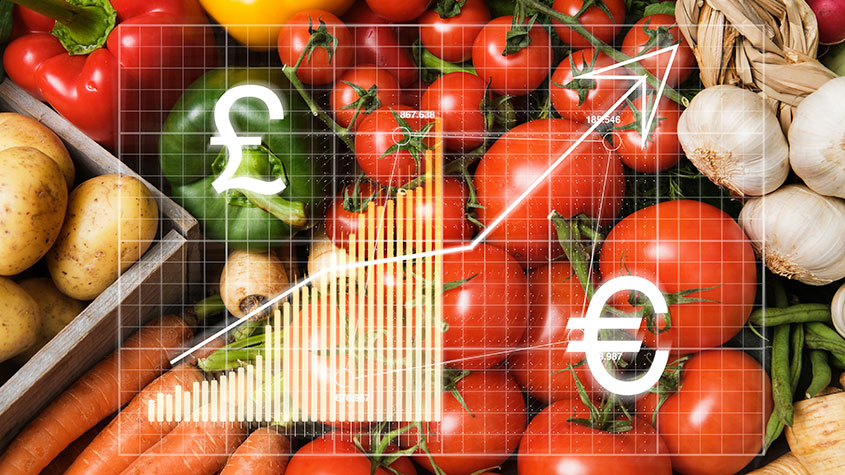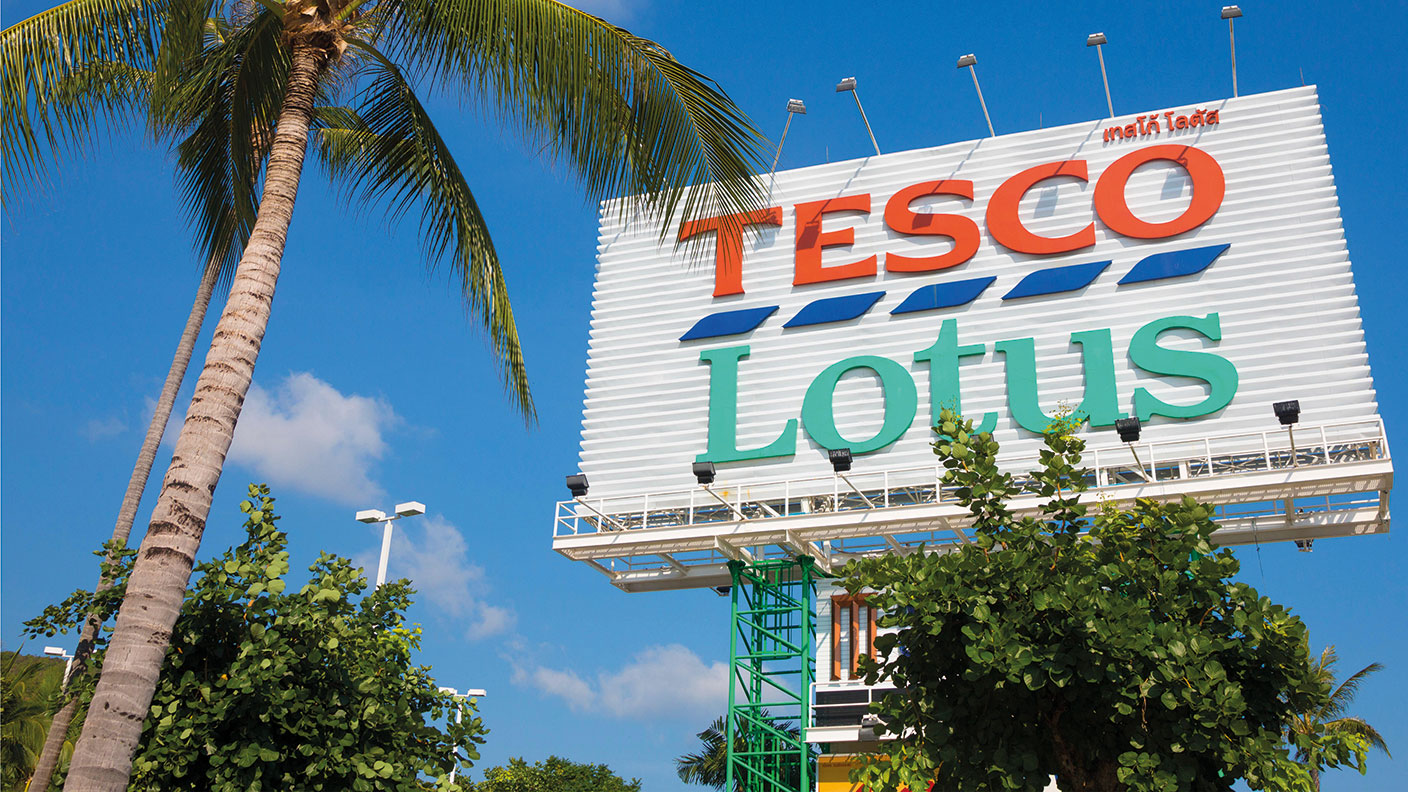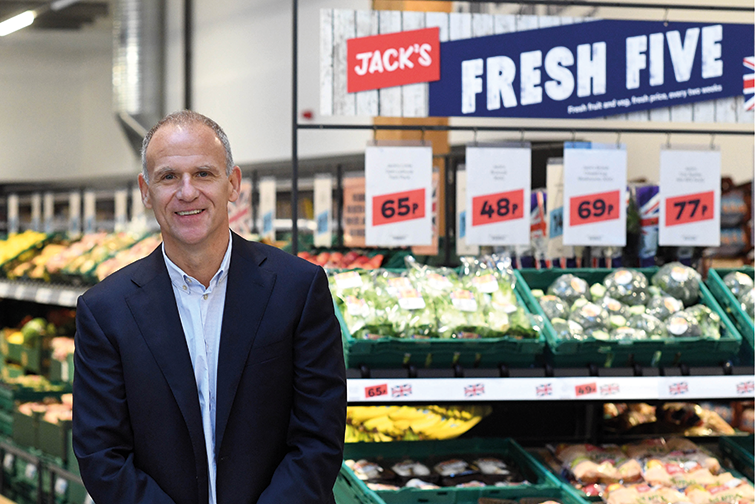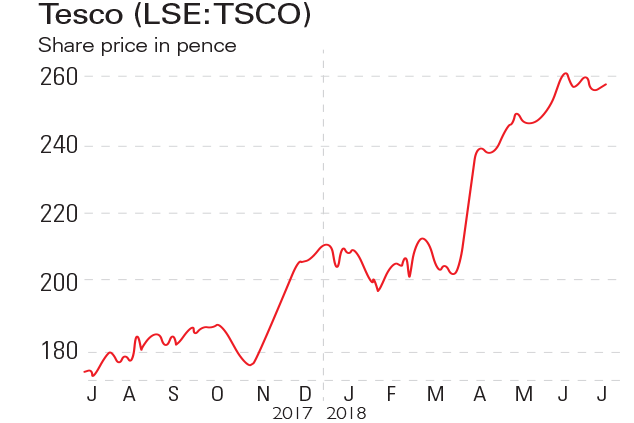What’s Tesco’s dividend cut tells us about the future for stocks
Don't bet Tesco's dividend cut is a one-off, says Matthew Lynn. There could be much more to come.

Get the latest financial news, insights and expert analysis from our award-winning MoneyWeek team, to help you understand what really matters when it comes to your finances.
You are now subscribed
Your newsletter sign-up was successful
Want to add more newsletters?

Twice daily
MoneyWeek
Get the latest financial news, insights and expert analysis from our award-winning MoneyWeek team, to help you understand what really matters when it comes to your finances.

Four times a week
Look After My Bills
Sign up to our free money-saving newsletter, filled with the latest news and expert advice to help you find the best tips and deals for managing your bills. Start saving today!
Dave Lewis certainly knows how to arrive with a splash. Taking up the reins as the new boss of Tesco this week, his first move at the embattled retailer was to slash the dividend.
Tesco cut its half-year payout by 75%, vowing to spend the money on taking the fight to the new breed of low-cost rivals that has eaten into its market share.
Investors will hope it's a one-off, and that Tesco will restore its payout as Lewis nurtures the chain back to health. The trouble is, it may be just the start of a trend. Dividends have grown at an extraordinary rate over the last decade, as companies have pushed up profit margins and, in turn, dividend payouts.
MoneyWeek
Subscribe to MoneyWeek today and get your first six magazine issues absolutely FREE

Sign up to Money Morning
Don't miss the latest investment and personal finances news, market analysis, plus money-saving tips with our free twice-daily newsletter
Don't miss the latest investment and personal finances news, market analysis, plus money-saving tips with our free twice-daily newsletter
But those margins, as Tesco discovered, may well be unsustainable. If so, Tesco will be far from the only big company that has to slash its dividend over the next few years and that is very bad news for stocks.
There are many reasons for Tesco's current woes. Like many big companies, after a long, very successful run, it started to believe its own hype. It built too many drab out-of-town sheds at a time when shoppers were increasingly turning to the internet to buy TVs and dishwashers, and it expanded into overseas markets that it knew too little about.
It had so many plans for world domination, from attacking the Far East and the US, to taking over the banking industry, that it lost its focus on selling cheap milk and sausages to the average British shopper. So far, it is a very familiar story.
But there is another factor that is often overlooked. It allowed its profit margins to drift too high. Tesco is currently running an operating margin of 3.8%. It may not sound a lot, but in the fiercely competitive grocery market, it is actually pretty high.
France's Carrefour makes 3.4%. America's Walmart is on 3.13%. Amazon hardly makes anything. By global standards, Tesco was putting a more than generous mark-up on all the stuff it shipped out of its stores.
It wasn't alone its main rivals did the same thing. So what happened? Foreign companies such as Lidl and Aldi saw the opportunity to come into the UK, run on far lower profit margins, and undercut the established players. As a result, Tesco has been forced to respond with price cuts of its own, and the slashed dividend is the consequence.
In effect, that high payout to shareholders was financed by charging too much in the stores and now that competition has ended that, the dividend has to come down.
The worrying point is that it may not be alone. The other UK supermarkets may be just as vulnerable. Sainsbury's and Morrisons may have to cut their prices as well to match Tesco and the discounters.
Food is the only really successful part of M&S's business, but there is no reason to imagine it is invulnerable to the same pressures even its well-heeled customers can be tempted away by cheaper prices. And it doesn't necessarily stop there.
In fact, across wide swathes of British business, margins are generous by global standards. The traditional airlines were taken apart by low-cost rivals, such as easyJet and Ryanair.
Now, the retailers are seeing the same pressures. And it would not be surprising if financial services, utilities, transport, food manufacturers and leisure operators all found themselves in the same situation over the next few years.
Dividends have grown at a remarkable rate recently. According to share registrar Capita, British quoted companies paid out £63bn in dividends in 2007. By last year, that had grown to £80bn, and is expected to top £100bn this year.
Unfortunately, the global economy let alone the UK economy is not much bigger than in 2007. So this pay out has grown substantially in an economy that has hardly grown at all. In effect, it means shareholders are taking a bigger and bigger slice of a pie that has remained roughly the same size.
That is great for them, and dividend growth is one reason why the stockmarket has been so strong overthe past few years. But if dividends have been paid for by companies pushing up prices too aggressively, and letting their margins grow too fat, then they won'tbe sustainable.
Whenever a company starts making excessive profits, it is always vulnerable to attack. It does not necessarily happen right away. In most industries, there are substantial barriers to entry. It isn't easy to build enough shops to dent Tesco, as Aldi and Lidl discovered but over time it can be done.
Likewise, it won't be easy to create lower-cost banks, or insurers,or cinema chains, or restaurants.But that doesn't mean it can't be done. If the opportunity is there, someone will seize it.
So, don't bet that Tesco's dividend cut is a one-off, special case the fact that dividends have grown far faster than the economy suggests that many quoted companies have been pushing prices up too rapidly. Sooner or later, those dividends will have to come down and when they do, they will take the stock market down too.
Get the latest financial news, insights and expert analysis from our award-winning MoneyWeek team, to help you understand what really matters when it comes to your finances.

Matthew Lynn is a columnist for Bloomberg and writes weekly commentary syndicated in papers such as the Daily Telegraph, Die Welt, the Sydney Morning Herald, the South China Morning Post and the Miami Herald. He is also an associate editor of Spectator Business, and a regular contributor to The Spectator. Before that, he worked for the business section of the Sunday Times for ten years.
-
 The downfall of Peter Mandelson
The downfall of Peter MandelsonPeter Mandelson is used to penning resignation statements, but his latest might well be his last. He might even face time in prison.
-
 Default pension funds: what’s in your workplace pension?
Default pension funds: what’s in your workplace pension?Default pension funds will often not be the best option for young savers or experienced investors
-
 How to profit from rising food prices: which stocks should you invest in?
How to profit from rising food prices: which stocks should you invest in?Tips Food prices are rising – we look at the stocks to avoid and the one to invest in this sector.
-
 Tesco looks well-placed to ride out the cost of living crisis – investors take note
Tesco looks well-placed to ride out the cost of living crisis – investors take noteAnalysis Surging inflation is bad news for retailers. But supermarket giant Tesco looks better placed to cope than most, says Rupert Hargreaves.
-
 Tesco sells its retail subsidiary in Thailand and Malaysia for £8bn
Tesco sells its retail subsidiary in Thailand and Malaysia for £8bnNews Tesco has agreed to sell its southeast Asian operations to Thai conglomerate Charoen Pokphand for £8.2bn in cash.
-
 Tesco should keep its Asian assets
Tesco should keep its Asian assetsOpinion The £7bn that Tesco could get for its Tesco Lotus business in Asia looks enticing. But holding on to it would be smarter, says Matthew Lynn.
-
 Tesco cashes out of the mortgage business
Tesco cashes out of the mortgage businessFeatures Tesco Bank has left the mortgage market by selling its £3.7bn loan book. Its 23,000 customers will be moved to the Halifax, a subsidiary of Lloyds.
-
 Tesco wields the axe
Tesco wields the axeFeatures Britain’s biggest supermarket is cutting back on staff and fresh food. Will the move prove counterproductive? Matthew Partridge reports.
-
 If you'd invested in: Tesco and Associated British Foods
If you'd invested in: Tesco and Associated British FoodsFeatures Tesco has seen its market value rise almost 50% in a year, while AB Foods has seen shares slide despite a rise in profits.
-
 What's behind Tesco’s alliance with Carrefour?
What's behind Tesco’s alliance with Carrefour?Features Tesco is clubbing together with French rival Carrefour to bulk buy own-label goods in an effort to cut costs. Will it succeed? Ben Judge reports.